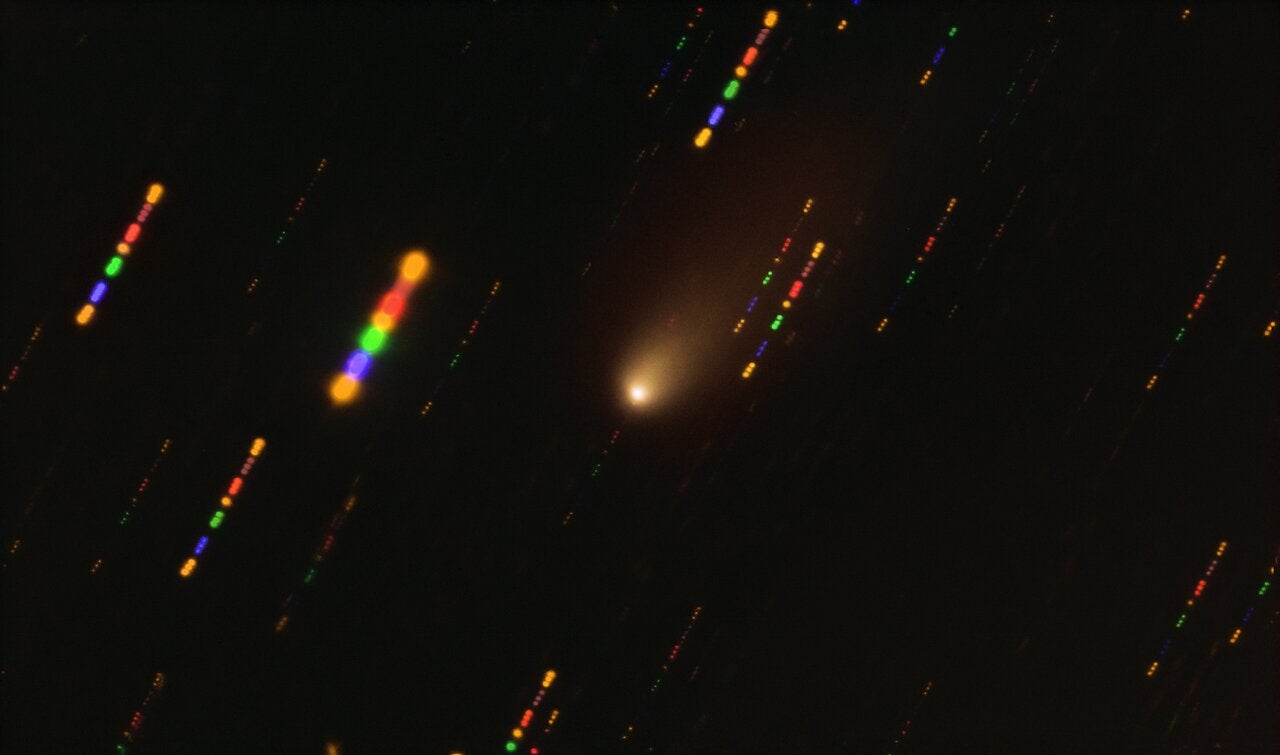The Independent's journalism is supported by our readers. When you purchase through links on our site, we may earn commission.
Unexpected substances found in comets from our solar system and throughout the universe

Unexpected metals have been found in comets that originated outside our solar system as well as within it, according to major new research.
Scientists found iron and nickel, which they referred to as a “big surprise”, inside the objects. The comets were found throughout our solar system as well as in 2I/Borisov – an interstellar object that began its life in another planetary system.
Such heavy metals are usually expected in hot environments and it is the first time they have been discovered in the much colder atmospheres, researchers say.
“It was a big surprise to detect iron and nickel atoms in the atmosphere of all the comets we have observed in the last two decades, about 20 of them, and even in ones far from the sun in the cold space environment,” said Jean Manfroid from the University of Liege, who led the study.
And the fact they were found in objects that come from such different parts of the universe suggests there is some unknown affinity between our solar system and the distant atmosphere comet 2I/Borisov was formed in.
“If we can unravel the origin of nickel and iron in regular comets and this interstellar object, we might uncover a shared story of organic chemistry between different planetary systems,” scientists away from the study wrote in an accompanying article, published in Nature. They call the similarity between the two objects “striking”, especially given the unknown nature of 2I/Borisov and its distant birthplace.
Comets can offer a look at solar systems in much earlier states, since they are made up of dust and ice from the time the planets were first forming. Researchers are able to explore them by looking at their coma – the trail that follows the comet – and inferring their composition.
Usually, metals are notably absent among those coma, because temperatures are not high enough.
Researchers who looked at 2l/Borisov found that it appeared to be emitting nickel despite its distance from our sun. Rather than being released by heat, the metal may be being released by photons, they suggest.
In a separate study, scientists found the same surprising result when they looked at the comae from comets in our solar system.
Researchers are now keen to find out where these unexpected substances came from. But the comets themselves are offering early clues.
The metals appear to be present in a particularly volatile state, for instance, and the ratio of nickel to iron is much higher than it usually is when looking at our sun or other meteoroids.
The two studies – one examining the interstellar comet and another looking at objects from our solar system – are both published in Nature.
Subscribe to Independent Premium to bookmark this article
Want to bookmark your favourite articles and stories to read or reference later? Start your Independent Premium subscription today.

Join our commenting forum
Join thought-provoking conversations, follow other Independent readers and see their replies
Comments